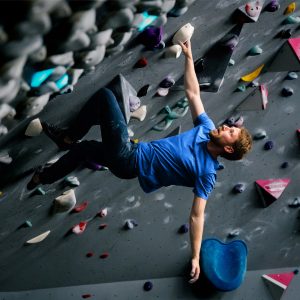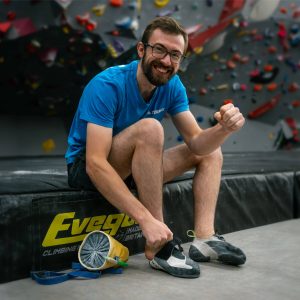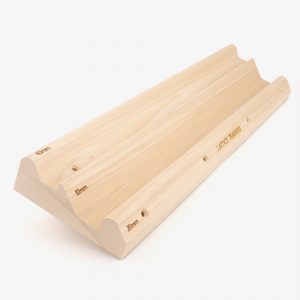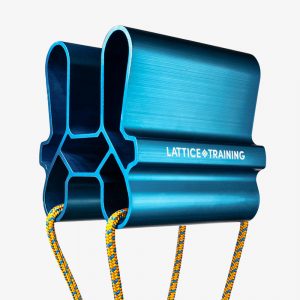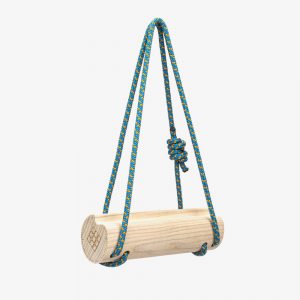In the Field and On the Wall | Latticer Stories
Sebastian Bailey is one of our clients with a more interesting and tricky-to-manage work schedule. Working as an Intelligence Officer in the U.S. Marine Corps, Sebastian has to be physically ready for training and field events, working his training for climbing around this. With the support of coach Ella Russell, Sebastian succeeded in sending a number of short and long term goals, up to 5.12b/c that he once believed were unattainable. In this blogpost, Sebastian tells us about his top tips and tricks for training in the field, and how he manages the mental aspects of climbing around an often stressful working life.
If you think you have your own story to tell, email [email protected].
Hey Sebastian, can you tell us a little about your recent climbing successes?
My recent string of successes started in September 2019, and in hindsight the majority of them would not have happened without the training that I’ve been doing with Ella. I’ve listed them below with some rough dates and notes.
I was giddy after almost every big send- grinning from ear to ear, shouting from the chains, walking on clouds for a full 2 days after…
Part of this was that pretty much each one has surprised me to some degree – either the speed that I did it, how easy it felt when I sent or the fact that I completed it at all (some of them have been in tough styles for me). The exceptions being some of the recent ones, as the training with Lattice has just left me feeling so much more confident and capable on rock, even in the funky Joshua Tree style that makes up so much of my climbing. Although I must say that walking around with that confidence in myself has been an even better feeling, although a much different one…
| Name | Grade | Location | Notes |
| All your pump are belong to us | 12b | Mount Charleston, Nevada | First ever 12b. Went from being ballistically pumped just going bolt to bolt to shaking out on crux holds (lots of AeroCap) |
| Hey Dude | 12a | Suicide Rock, California | 5.12 slab at an old school, sandbagged California area…didn’t think I would have those skills for years. |
| Leave it to Beaver | 12a | Joshua Tree, California | Hardest trad lead by 2 grades, another old school, sandbagged California area and a very pumpy climb to boot (not good at pump) |
| Satanic Mechanic | 12b/c | Joshua Tree, California | This is where I had my mental breakthrough (more on that later), by far my hardest route and climbing at the best I ever have. Similar grade (and style) to All your pump, but due to the vagaries of grading in different areas, this felt at least 1, if not 2 grades harder. |
| The Tumor | 11d/12a | Joshua Tree, California | Went down in 3 tries in 1 day with no outside beta help- a huge step for me with the J Tree funkiness. |
| White punks on Dope | 12a | Joshua Tree, California | Weird J-Tree moves |
| More Monkey than Funky | 11c | Joshua Tree, California | Not as impressive in terms of difficulty, but it’s an awesome route that I’ve wanted to do since I moved to J Tree. And 11c trad is still significant for me. |
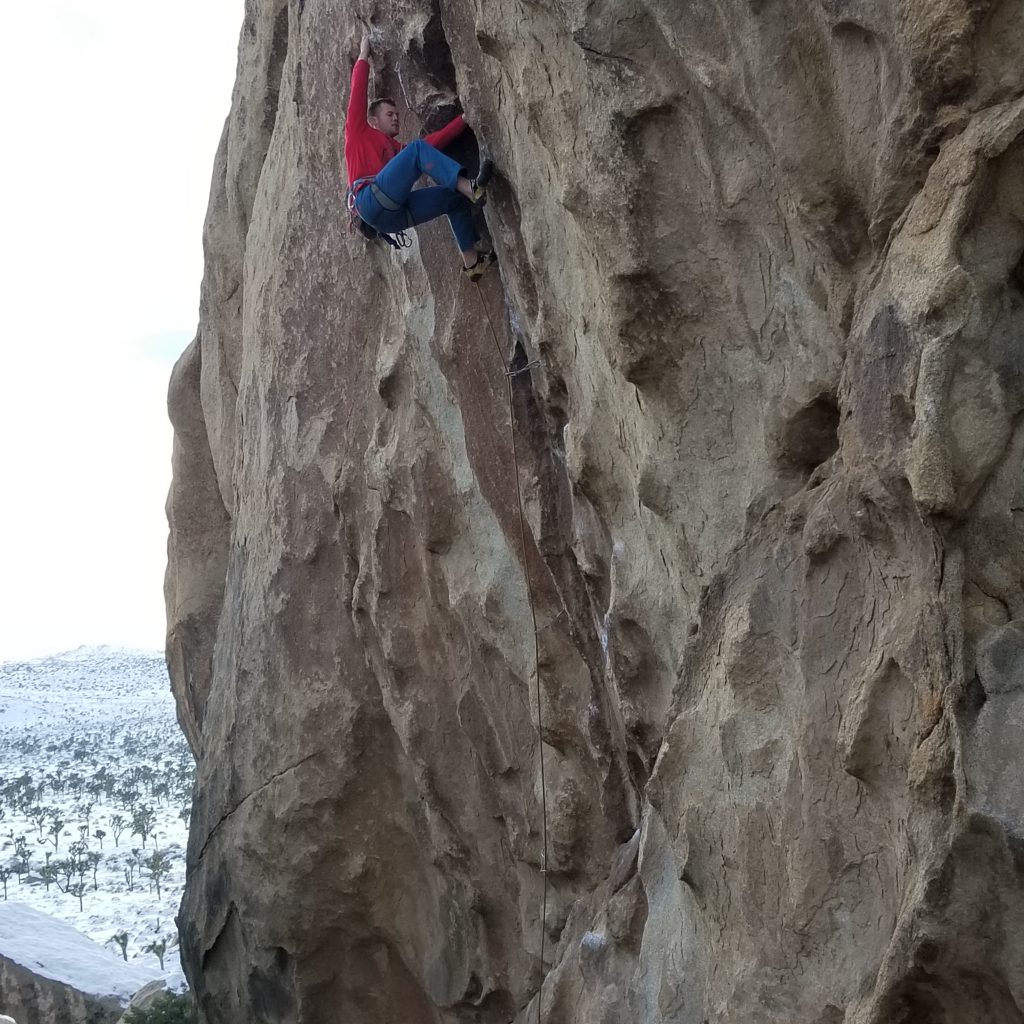
Amazing to hear that you hit so many of your goals, new and old. When did they first seem attainable?
I originally wanted to send a 5.12 in Joshua Tree when I first moved here (September 2018). But after a season of trying to learn the style and not training very well, I wound up settling for a couple of 11cs (still very proud for me at the time given the location and style (trad thin hands)) (it’s worth noting that I tried Leave it to Beaver that season and every part of it felt impossible). Even at the start of this season (September 2019) these goals seemed reachy at best and didn’t really seem reasonable until I sent Hey Dude and All Your Pump. And even then they seemed like they would be large projects until I sent Leave it to Beaver. Now I’m confident that the only thing stopping me from sending my entire ticklist and then some is getting enough time away from work to climb.
I understand that you have a very physically demanding job. How do you manage your training around this, and what challenges does work face to your climbing?
My job is mostly an office job with difficult to predict/long hours. However, I am in the USMC (United States Marine Corps) and that can (and often does) switch to being quite physically demanding when we have training/field events.
Even with the fact that I often work in an office, I still have to be physically prepared for those aspects of the job, so balancing that kind of physical preparation with climbing has long been a dilemma for me…
(Being a better climber does not leave you physically prepared for carrying heavy loads for long distances).
Fortunately, I have a fairly extensive training history preparing for those kind of physical demands, so it’s (relatively) easy for me to fall back to maintenance level volume and “coast” on the years of specific training I’ve put in previously. Even with that, I do have to occasionally schedule “tune-ups” for different physical capabilities to keep myself from sliding too far away from the standards imposed by my work. This is a fairly continuous conversation between Ella and myself as I still do my own programming for the military related work. I have a fairly long history of training for it and I have a very good idea of what exactly is required of me and how much (or little) is needed to be able to do that.
Interestingly, I find that as long as I can make it to some quality training facilities (which is often difficult/impossible if we’re in the field), I can still get a quality session in as long as I keep the volume low. I find that the more physical days, while obviously fatiguing on my body, leave my mind fairly fresh and allow me to focus and try quite hard still at the end of the day. I just don’t have the juice to do a large amount of volume. Conversely, after a normal long day of hectic planning/product creation/etc, my body is fresh and can handle a large volume of training, but it can be harder to focus on really quality efforts.
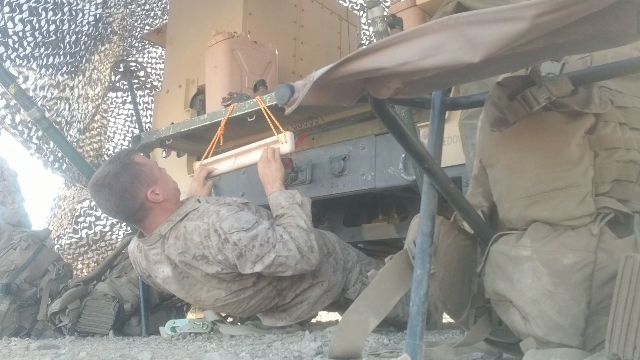
How do you manage your training for climbing around working in the field or remotely? Do you have any tips and tricks for anyone else who might find themselves in the same situation?
Being fully in the field is somewhat different from work obligations that just take me away from my normal routine/house/training facilities for a chunk of time. When I’m fully in the field, my main focus is on not losing the gains I’ve made recently, but progressing beyond that is pretty much out of the question. However, if I’m just away from my normal life, I do my best to keep my training going, but I often need to make adjustments.
This brings me to my first piece of advice – buy a portable hangboard. I’m sure everyone who has a demanding job has heard this before, but you would be amazed how much training you can do on a hangboard, and how many places you can do it in. Coupled with that, I recommend buying a set of resistance bands so you can take weight off for AnCap/AeroCap/AeroPow sessions. It’s far less precise than a pulley system to be sure, but they are also far more portable and easy to use in weird locations. And as long as you know what the intensity should feel like, they will easily get you to an 80% solution, which is all you can really expect out of those difficult environments, and all you really need to keep making progress unless you’re a really high end athlete.
Understanding that you need to find the 80% solution (and that 100% is probably never going to happen) has been pretty key for me in terms of keeping my training on track and still making progress despite odd and difficult work requirements.
My last piece of advice is to always be looking forward and build flexibility into your plan ahead of time. You should never be married to one specific plan, you should understand what that plan is trying to accomplish and have a couple of different ways to reach that end-state. It is very likely that you won’t be able to do your boulder doubles the way you’d like to, but if you have back-up plans that reach that 80% solution (such as AnCap hangs), you can still make progress.
This is actually something I’ve noticed throughout my training with Lattice, not just when I’m in the field – it is very helpful to know enough about training to understand what your sessions and plan are trying to accomplish (and then talk to your coach to make sure you’re on the same page). This way, when an obstacle inevitably appears in your path, you know the underlying structure and progression that needs to be present to make progress, so you can make some adjustments to avoid the obstacle but still make gains that fit within the overall plan.
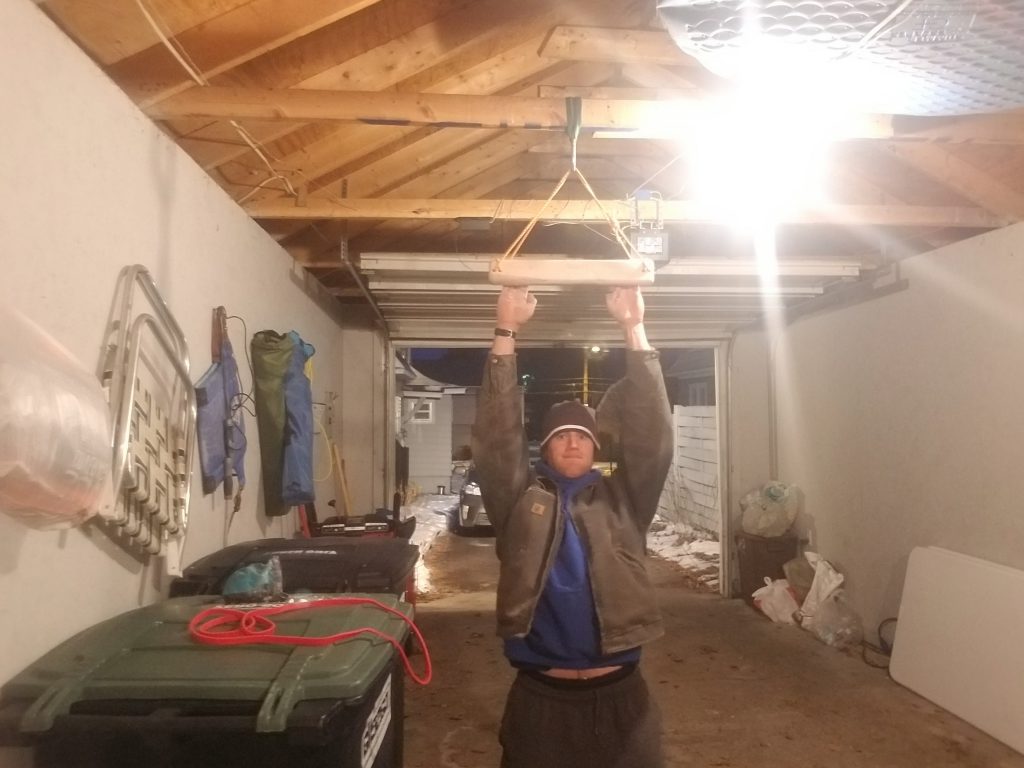
How do you feel from your training with Lattice?
I feel much more confident in my climbing ability and much more able to last for long days on the rock. The increased physical capacity has allowed me to approach routes in a new way and move much better than I ever have before.
You mentioned previously being able to enter a state of mind that allowed you to achieve your goals – almost a flow state I believe – could you tell us a little about this?
I’ve elaborated a little more on this in a recent email to Ella (which I’ve pasted below). The exciting thing is that this seems to be sticking around despite the reintroduction of some job stressors and has added a new dimension of enjoyment and fulfilment to my climbing. The perplexing thing is that I still don’t fully understand how I flip that switch, but I’m still investigating there…
“The mental state struggles/breakthroughs I’ve been having stem more from performance anxiety than anything else. I don’t like describing myself as being a stressed person, but I do have to admit that my job (especially with the terrible planning that is done in my unit) does carry some degree of stress with it. And while I might deal with it well, it does still have some impacts. That coupled with a feeling I often have (also linked to my work) that I need to send THAT day or else my window has closed, leads me to be a lot more nervous once the time for full redpoint goes comes around. Sometimes I still move well, sometimes I move clunky. A lot of times I send it anyway, but I couldn’t enjoy the experience due to nerves. However, over this last trip to J Tree, this all seemed to melt away. I was a little nervous (nervous about not being nervous…) that it was a result of being on leave, being away from work, and always knowing that I could come back the next day.
The exciting thing about this weekend is that I held on to that headspace despite having a pretty stressful week at work and knowing that I only had that day on the route (and an important route to me). We originally had no plans to come back on Sunday as my climbing partner thought she had to drive back to San Diego, so today was just gravy. Despite all that, even on the last go of the day I managed to clear my mind, climb well, and just enjoy it…”
“And being able to climb without anything else going on in my head is one of the most rewarding things about this sport for me.”
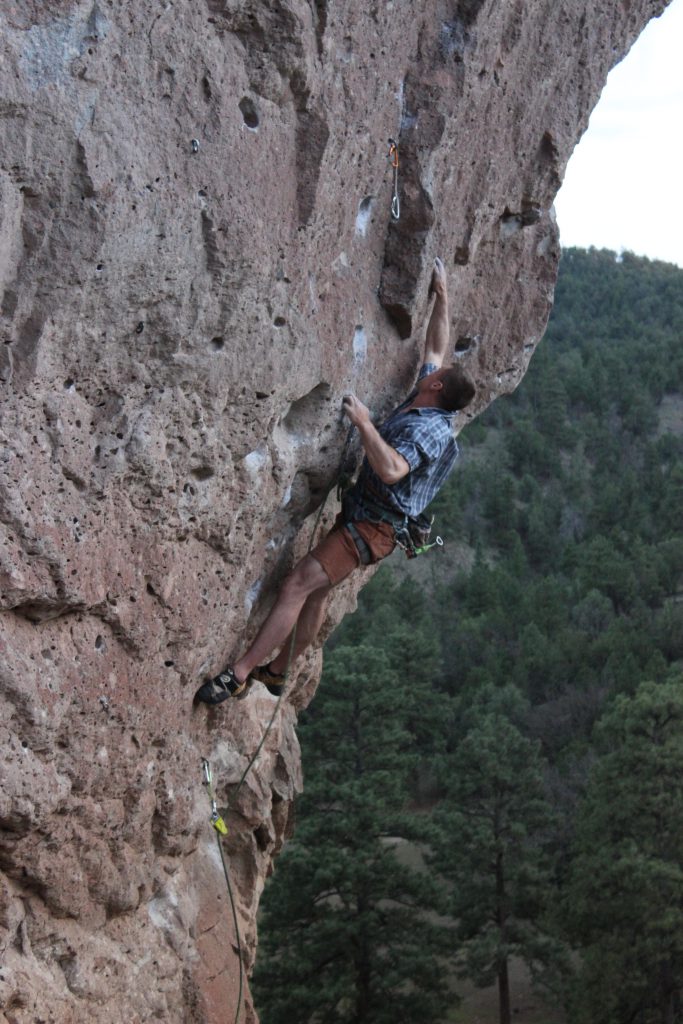
What are your future goals and how do you hope to achieve them?
With an upcoming deployment, my goals for the next 9 months are fairly modest — continue to tick some 5.11-5.12 routes in Joshua Tree and find a way to make progress while deployed. After that… in the next 18 months I’d like to send my first 13a and transition some of this new-found strength and ability to long free routes.
As for the how… Continue finding ways to fit my training into my upcoming strange situations is really the heart of it. I’ll certainly still be working with Lattice for the nitty gritty details, but as long as I can stay consistent with training, learning and climbing, I’m confident that I’ll accomplish those and much more.
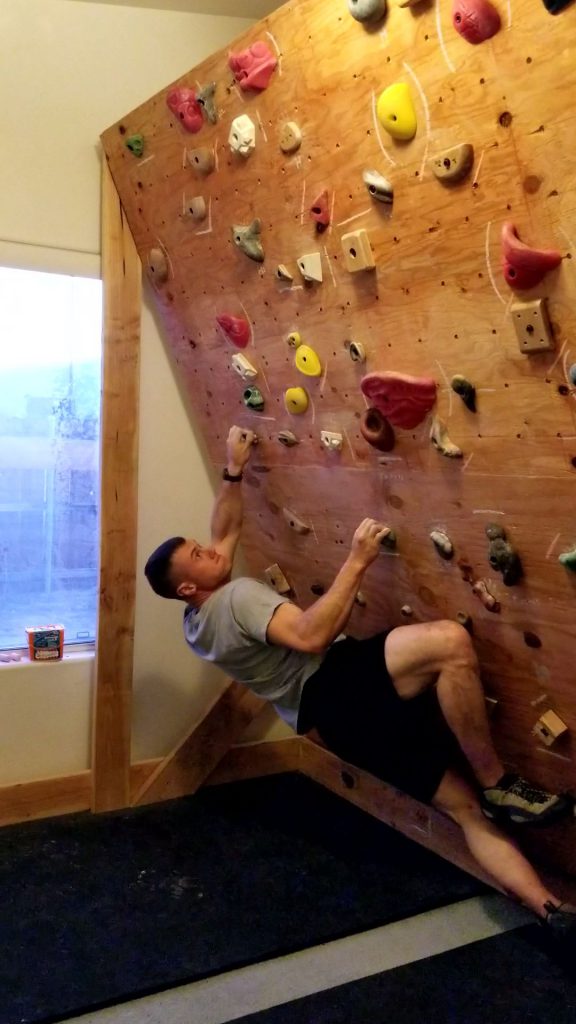
What are the best pieces of advice you would give to others with regards to training towards their goals?
Be truly honest with yourself about what your goals are and be very intentional about the steps that you are taking to reach them. If you haven’t figured out these things, the dissonance created will create chaos in your training and progress and sabotage what you’re working towards.
We asked Sebastian’s coach, Ella Russell, what it was like worked with him as a client;
“Working with Sebastian has and continues to be a really rewarding experience as a coach. Almost every week without fail Sebastian has taken the time to give me a meticulously detailed breakdown of his training and other physical workload through his job in the USMC (which can be phenomenally demanding, both physically and mentally). As his coach, this has given me a crucial insight into his lifestyle and the significant fluctuations in his allostatic load, which we’ve worked around in planning his training. I’ve been continually impressed with Sebastian’s high level of self-awareness and his commitment to (and enjoyment of!) learning from the process – these characteristics prove time and time again to be so fundamental for anyone wishing to push themselves in their chosen sport or discipline.”
Sign up for your own Climbing Training Plan+.
